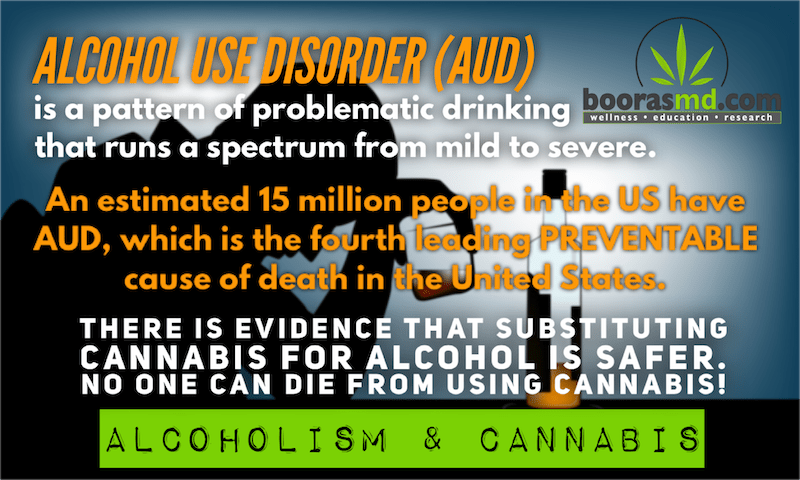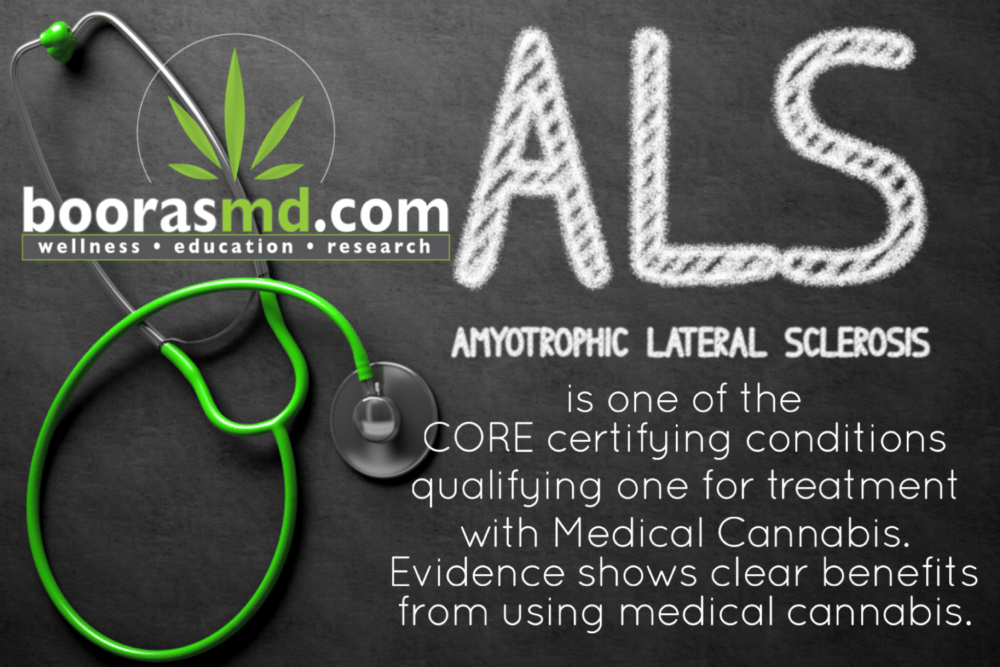Alcoholism and Medical Marijuana (Cannabis)
Alcoholism and Cannabis
Summary: Alcohol Use Disorder (AUD) is a pattern of problematic drinking that runs a spectrum from mild to severe. Moderate to Severe AUD is also known as Alcoholism.
An estimated 15 million people in the US have AUD, which is the fourth leading preventable cause of death in the United States.
In 2010-2012, around 38 million American adults said they binge drink on average four times a month, drinking an average of eight drinks per session.
The definition of heavy drinking is consuming eight drinks or more per week for women, and 15 or more drinks per week for men.
https://www.medicalnewstoday.com/articles/297734
A person with AUD does not know when or how to stop drinking. They spend a lot of time thinking about alcohol, and they cannot control how much they consume, even if it is causing serious problems at home, work, and financially. Alcohol is clearly associated with significant health risks as well.
https://www.niaaa.nih.gov/alcohol-health/overview-alcohol-consumption/alcohol-use-disorders
Conventional treatment:
- Behavioral therapy. Therapy includes Cognitive-Behavioral Therapy (CBT), Motivational Enhancement Therapy, Marital and Family counseling along with Brief Interventions. Counseling is directed at changing drinking behavior. There are studies demonstrating its effectiveness.
- Mutual-Support Groups. Alcoholics Anonymous, and similar programs, provide support from other individuals who have quit using alcohol or are in the process of cutting back alcohol consumption. Success rates are hard to measure scientifically due to the anonymous nature of these programs.
- Medication. The U.S. Food and Drug Administration (FDA) has approved three medications for treating alcohol dependence.
-
- Naltrexone (ReVia and others) is an opioid antagonist. It can help people remain abstinent after they have quit drinking.
- Acamprosate (Campral) is a GABA analog. It also helps people maintain abstinence.
- Disulfiram (Antabuse) blocks the breakdown (metabolism) of alcohol by the body, causing highly unpleasant symptoms such as nausea and flushing of the skin after consuming any product that contains alcohol.
Medical Marijuana (Cannabis): Cannabinoids, primarily THC and CBD, within the marijuana plant stimulate receptors within our Endocannabinoid system (ECS) to help restore balance and equilibrium within the body. It has also been shown that medical cannabis can improve a persons state of mind. Once people are feeling better there is a reduced craving to self-medicate with alcohol.
Although controversial, there is some evidence that substituting Medical Marijuana (Cannabis) for alcohol is a safer tactic than continuing to drink alcohol excessively.
http://www.cannabis-med.org/iacm/data/pdf/2004-01-3.pdf
The old, and unproven, concept that marijuana is a “gateway” to use of harder drugs has clearly been disproven. Cannabis opponents argue that it is counterintuitive to fight off one dependency by initiating a different product with mind altering properties. There is data showing that adding CBD to THC not only increases the clinical benefit of Medical Marijuana (Cannabis), but also reduces the psychoactivity of THC.
“There are many roads to getting better. What is important is finding yours”
References:
- https://www.verywellmind.com/the-dangers-of-the-marijuana-maintenance-program-67746
- https://www.labroots.com/trending/cannabis-sciences/13701/medical-marijuana-treat-alcoholism
- https://volteface.me/feature/stopped-drinking-started-consuming-cannabis/
- https://hams.cc/mm/
- https://thefreshtoast.com/cannabis/proof-that-marijuana-is-more-than-100-times-safer-than-alcohol/
- https://www.medicalnewstoday.com/articles/297734
Written by Charlie Booras, MD on 8/19/20.
Updated on February 2, 2021



